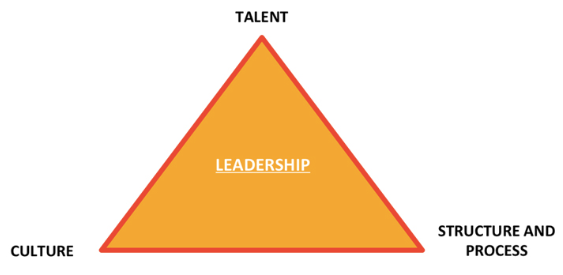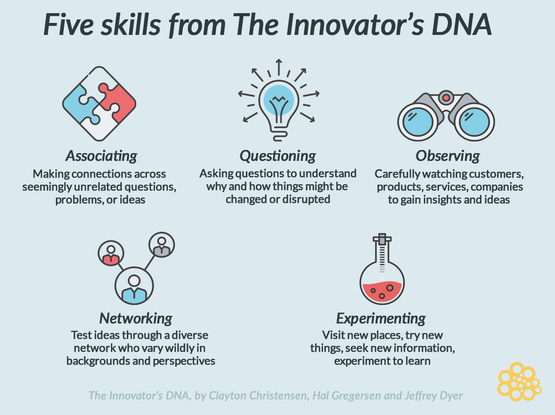As part of my series on how to become an Incredibly Successful HR Leader we have reached the point where it is all about how you translate and use your reputation, your skill and expertise, and your insight and foresight to develop innovative HR Solutions. These HR solutions need to support line managers in maximising the performance of their teams and individuals as well in building the right organisational capabilities to succeed in the future.
In supporting the line, HR has got four levers to focus on:
- Talent: Selecting, developing, engaging and rewarding people with the right abilities and commitment to deliver results for the organisation
- Structure/Processes: Enabling the right structure and processes at the right costs to deliver results
- Culture: Establishing a way of working to create sustainable organisational capabilities that differentiate the organisation from its competitors
- Leadership: Ensuring that leaders across the organisation do everything possible to deliver value for all its stakeholders
Over the next couple of weeks I will share with you numerous ideas and innovative approaches on sourcing, selecting and inducting talent, developing people, driving performance, leveraging talent, culture and leadership. But first, I want to focus on how you can develop skills and an aptitude for innovation.
The guru on innovation and innovation behaviours is of course Clayton Christensen, the HBS professor renowned for his Innovator DNA and Innovator Dilemma books. He identified 5 skills that leaders need to posses to innovate:
So what can you do as an HR leader to develop these skills?
1. Associating
As Steven Johnson explains in his wonderful video Where Good Ideas Come from, the best ideas are born if hunches from one field are brought in touch with hunches that other people might have. That’s also the reason that so many tech companies have designed their offices for people to bump into each other to create serendipitous moments and people share hunches that might lead to full blown ideas.
2. Questioning
Most of us as HR practitioners are pretty well skilled in the art of asking the right questions, to challenge the status quo and asking why things are done a certain way. In my experience the most innovative ideas emerge from two set of questions:
- Questions where we impose almost impossible limitations (if we would not have money to pay our employees for 6 months how would we engage and retain them?)
- Questions where there are no limits (if we have unlimited development budget where would we spend the money?)
3. Observing
One of the prime benefits of attending an a conference or doing customer visits or traveling for that matter is the ability to ‘switch off’ and not get bogged down by 300 emails and activities. As a result the mind opens up and we see things in a different perspective or see new things. It’s all about getting as many new impressions as possible and asking yourself:
“How can I translate this idea and make it useful for my organisation?”
4. Networking
Often the least evolved skill of an HR leader is his ability to network. And I don’t mean his or her social ability to connect with people. I mean the ability to cultivate a network outside the organisation that could help generate new insights or ideas.
During our RBL leadership academy programs we do an exercise in which we ask people to list, in 60 seconds, 10 people whom they might go to for new ideas or suggestions. Most can’t. Even if they do, when I subsequently ask them to take out the people that are working in the same organisation, function and/or industry they’re left with 0 to 3 names. And most of them are either family members or student buddies.
Obviously you can’t use your network for new insights or ideas if almost all of them have the same background, experience and way of thinking. So go out there and meet people outside of your industry, company or HR function and just absorb.
5. Experimenting
My favourite of all innovation skills is experimentation. Again not many HR leaders are good in experimenting (as Jim Collins says “first fire bullets then cannonballs”). HR leaders are not only poorly versed in experimenting in the workplace, most don’t even experiment in their own lives.
I love to ask HR leaders: “When was the last time you did something for the first time”. Mostly answers range from 6 – 12 months and usually something they did during their last holiday. I’m sure by now you know what I’m trying to say. How can you learn, come up with new ideas, if you don’t even try new things yourself?
When I started my last corporate job I promised myself to do as many new things as possible. And you know what? It was the most generative and enjoyable years of my career. We did things that were at least 10 years ahead of their time and completely changed the way HR was operating in the organisation.
So start new things! It’s more enjoyable, it adds more value, it’s more exciting, it engages people and the worst thing that could happen is that the company fires you if it all goes wrong. And though I’ve never seen this happen, so what even if they do? You have a new beginning full of rich experiences to start from.
Like what you read? Subscribe to the Keijzer Community and get updates to your inbox. You’ll also get a free download which will help you take your leadership teams through a growth model which will help them mature on a personal and professional level.





